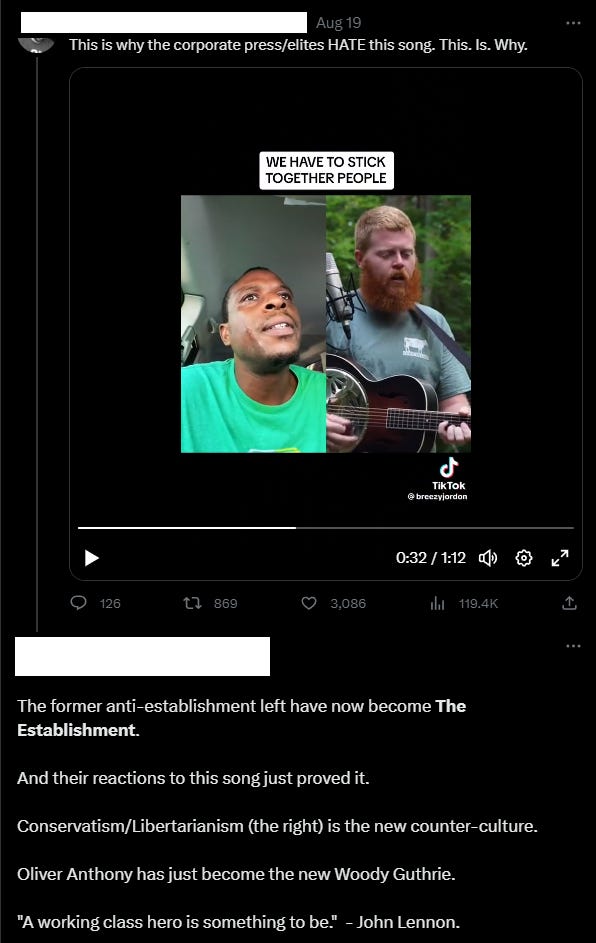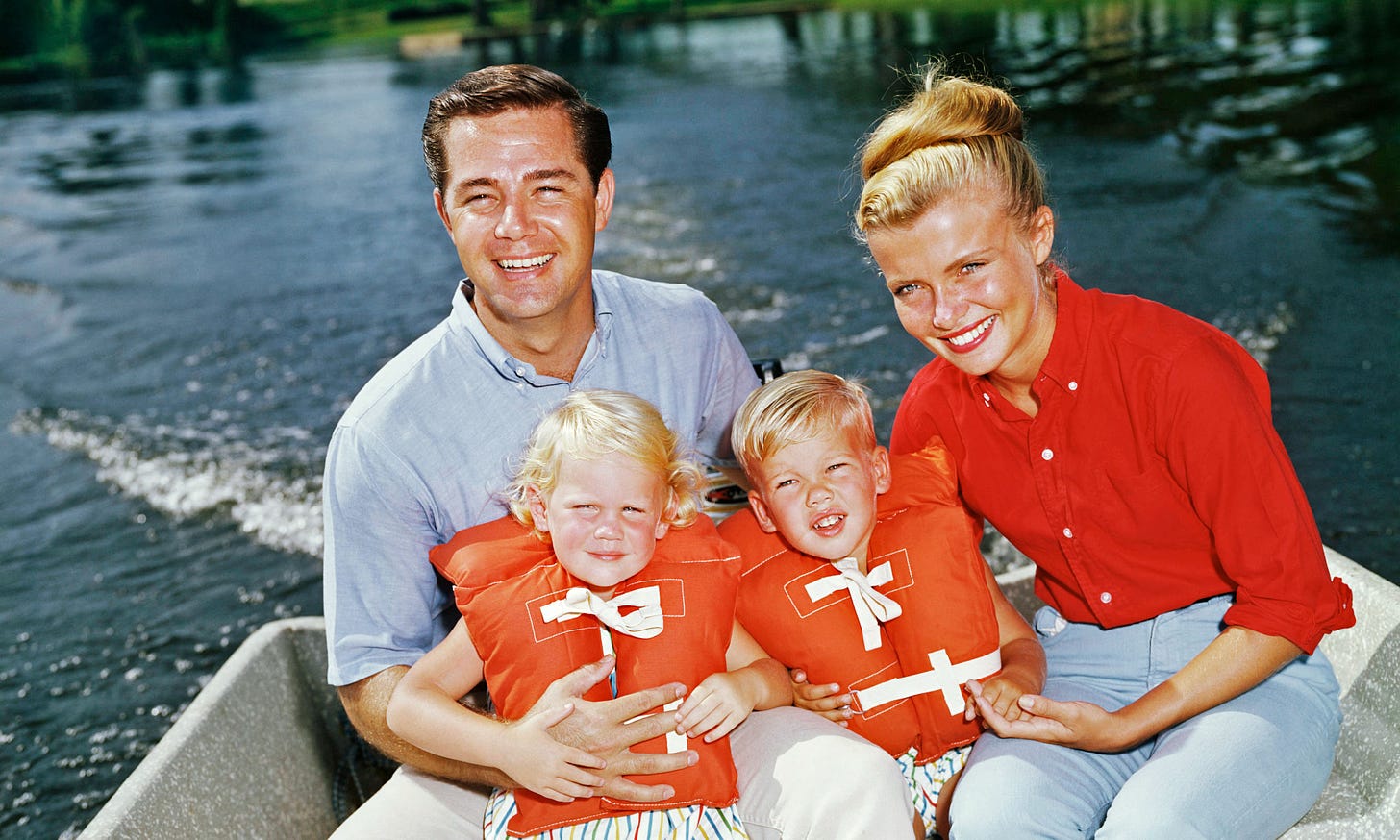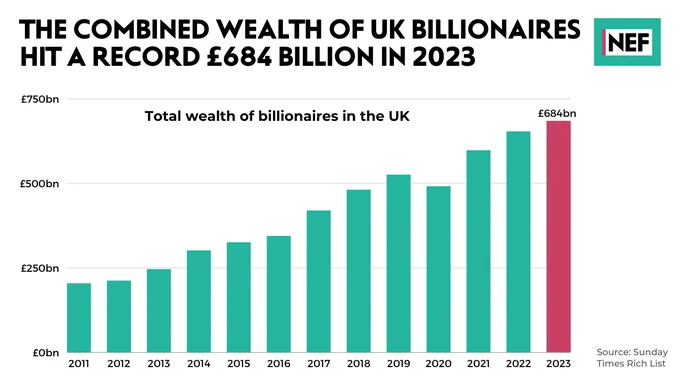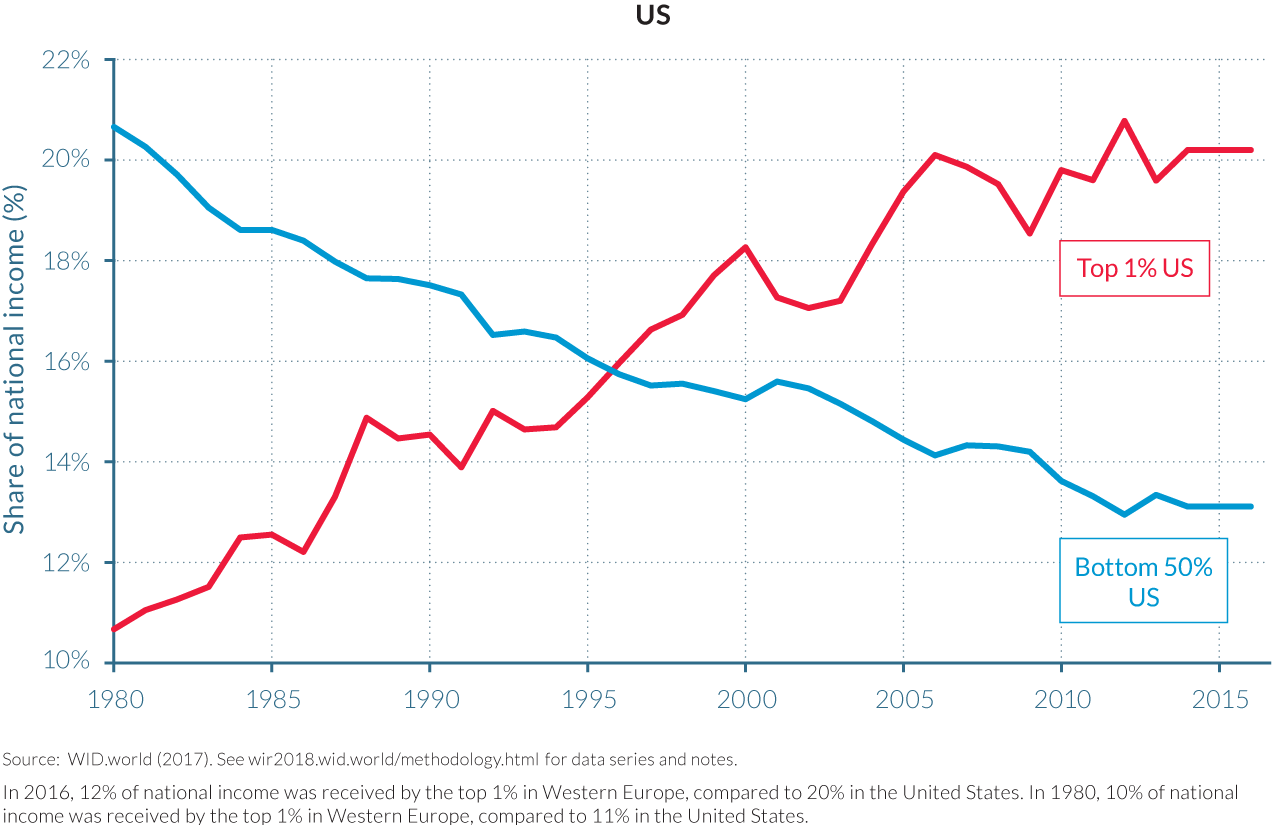Is Conservatism the New Counter-Culture?
As liberalism and the mantra of progressivism becomes increasingly entrenched in our society, is it accurate for conservatives to self-label themselves as the new counter-culture?
As I am writing this a song by singer-songwriter, Oliver Anthony, Rich Men North of Richmond, sits atop the Billboard 100 above the likes of Taylor Swift, Dua Lipa, Travis Scott and Doja Cat; a historic feat for an artist with no previous chart history.
The song’s release has not gone without controversy. Whilst featuring lyrics many socialists could approve of, including ones that concern working long hours for little pay and the class divide between the working class and the 1%; the song has become something of a rallying cry for conservatives due to its platforming of right-wing canards. Anthony accuses obese people and ‘welfare queens’ of milking the taxpayer, makes allusions to discrimination against white men, and invokes the mythology of far-right QAnon-adjacent conspiracy theories through his references to Epstein Island and the cabal-like qualities of the government. In this sense, the lyrical content of the song can be read as a playbook of libertarian conservative grievances, and as such the reception of the song has been broadly split along partisan lines - with the right heralding it as the voice of one man fighting against a broken system, a beacon of counter culturalism.
So given the fact that the song attacks the establishment, and is practically unique among recent musical phenomenon in its political inclination, it does not seem unreasonable to describe it this way, a counter-cultural hit, anti-establishment, the new punk, even.
The New Punk?
I have seen the phrase “Conservativism is the new Punk Rock” thrown around a few times in recent years, most notably by the notorious alt-right political pundit and conspiracy theorist Paul Joseph Watson, who claimed as much in 2017. Since that time his claim appears to have been legitimised by the likes of Johnny Rotten, the legendary Sex Pistols frontman who has become an outspoken supporter of Donald Trump.
Rotten may come across as somewhat unhinged, but he raises some genuine issues and points to dwell upon. He really embodies the mindset that led to the collapse of the Red Wall in the wake of Brexit - you see, there is a clear divide between the socialistic working class man that the culturally liberal political establishment seek to represent, and their own party ideology, and for better or for worse, these people are sick of being told how to think by the “smartarse” members of the intelligentsia who have little experience of what it means to struggle day-to-day.
From this position, it is perfectly reasonable to suggest that Rotten is merely continuing what he as always done as a punk rocker. Trump outwardly does appear to be a wildcard, an outsider to the political sphere who triumphed over Hillary Clinton in 2016, a candidate who very much personified the establishment and its smug, dismissive attitude of those operating outside of it; a “basketful of deplorables”, as Clinton absurdly described them - an attitude which really lent credence to the idea that those rallying behind Trump and his MAGA movement were truly anti-establishment.
The Zeitgeist
There has been a march in recent decades, albeit an uneven one, toward a more equitable society. Civil rights movements have broadly alleviated legal discriminations against minority peoples and the LGBT community, whilst in the cultural sphere mass media has grown more provocative, the influence of religion has waned, and the sexually provactive have become somewhat normalised. It is not a stretch to suggest that these are all ideas and occurrences which various conservative elements oppose. When right-wing media talks about halting this march, it could theoretically be seen as counter-cultural, or at least, counter-cultural-trend.
Children are pressured to conform to a liberal orthodoxy at school, those who adopt conservatism at a young age do so despite teachings and will find themselves in the minority among their peers. Again, this would indicate counter-culturalism. When the far-right find themselves censored online and having to go to extreme lengths to have their opinions heard, this would indicate that they are part of a counter-culture. As a socialist, I am able to voice my opinion online pretty much as I see fit without fear of censorship or particular repercussion from anybody other than the “other side”, yet I feel as if I am a member of the counter-culture. How can this be? How can I, someone in broad alignment with modern cultural values, be a member of the counterculture?
The problem is that conservatives have become fundamentally confused, their media cycle has become so polluted by wedge issues that they have lost track of the political reality, what those who wield true power are doing with it.
You see, I won’t deny that the cultural zeitgeist has moved out of reach of the conservative movement, and for good reason. Conservatism is a fundamentally unsexy ideology. It is of course, nice to think about nuclear families, pleasant to consider nice leafy suburbs full of people you can relate to, humbling to have a system of religious belief, and meaningful to adhere to a lifestyle of relative purity - many of these things seem desirable, but they aren’t thought-provoking, shocking, particularly interesting.
Culture is supposed to be provocative, cutting-edge, progressive. There is nothing conceptually interesting about a nuclear family of four living in the suburbs, stay-at-home mums and BBQs after church on a Sunday when these things are ordinary, and have been for decades. It is, whether it is right-or-wrong, human nature to be engrossed by sex, violence, drugs, drama, profanity and conceptually thrilling media. These are things which often don’t exist in great quantities in every day life, and mass media such as music, television, films, and video games are supposed to provide escapism, a reality which one doesn’t normally experience - that reality being the one filled with the mystique of fiction which has been unleashed by an erosion of public sensibilities in recent decades. There are very few people who want to listen to music about how you attend Church on a Sunday compared to the number of people who want to listen to music about gang warfare and the party life. There are very few people who want to watch a television show about a nuclear family who live an ordinary life in the suburbs compared to the number of people who want to watch a television show about psychopathic conmen who run a decrepit bar such as It’s Always Sunny in Philadelphia, a show which, in season 11, lampoons the idea that anyone under the age of 50 would actually desire to experience a quiet conservative life in the suburbs.
This is why culture will always carry the sheen of degeneracy, a zeitgeist which stands in opposition to conservatism, and it is these mediums which captivate the public interest the same way a good serial killer story does.
Culture is everywhere you look, it fills our free time, and thus, as a conservative, it is easy to perceive reality as one dominated by left-liberal ‘degeneracy’. Culture has an impact on society and vice versa, the normalisation of sex work in the physical world comes hand-in-hand with more sexually explicit films and tv, the proliferation of non-heteronormative, multi-ethnic characters in the cultural space comes alongside legal equality for these peoples. The commercialisation of ‘hood’ culture has led to many young white people adopting AAVE in their everyday speech. However, for the most part, the cultural zeitgeist exists independently of the true establishment, and, unless you live in a dictatorship with full control over the arts, this will always be the case. Cultural trends will be broadly out of the direct reach of the political sphere.
The Old World Order
In some respects, the rapid liberalisation of culture has provided a smokescreen for the establishment to grind on as always. So who is this shadowy establishment that the conservatives think they are fighting? Well in truth, they look and think broadly the same as they do.
Whilst the cultural sphere grows more liberal, our economical world slides further toward late capitalism and further away from the socialistic. Conservatives love to rattle on about how the West is becoming dominated by “Marxists” and that Joe Biden is a communist and that the American Dream is dead and so on and so forth, but the reality is that capitalism hasn’t been this entrenched since the Gilded Age. The economic establishment has not changed since the days of Thatcher and Reagan, and we live in the fallout of their economic policies even now - over thirty years since Thatcher’s resignation. As Peter Mandelson proclaimed in 2002:
No serious challenge on the Left exists to Third Way thinking anywhere in the world. This is hardly surprising as globalisation punishes hard any country that tries to run its economy by ignoring the realities of the market or prudent public finances. In this strictly narrow sense, and in the urgent need to remove rigidities and incorporate flexibility in capital, product and labour markets, we are all “Thatcherite” now.
Since the 1980s, the wealth of the 1% has exploded as deregulation and supply-side economics has come to dominate the Anglo-American economic system with little competition. Just since 2011 the wealth held by the UK’s billionaires has almost tripled. Meanwhile, in the US, the 1%ers have doubled their share of the nation’s income at the expense of the American poor. Surely if the establishment was dominated by the left-wing we would see these trends in reverse?
The entrenched economic trend is all the evidence that one really needs that the establishment is capitalistic. Capitalism is, fundamentally, inseparable from right-wing ideology. Certain contingents of right-wingers may openly discuss their disdain for the wealthy and the concentration of wealth in the hands of certain elites, but this doesn’t come from a position of socialism. Those on the right who find elites problematic do not do so because they don’t believe in a hierarchy or in the empowerment of capitalists, they do so because the existing hierarchy is one that they do not approve of. The average libertarian conservative may preach about his disdain for the elite but this doesn’t amount to a disdain for elitism, the libertarian merely wants to see the erosion of political powers that he perceives as preventing him and his fellow temporarily-embarrassed future millionaire brethren from joining the elite. His problem isn’t that wealth concentration exits, it is that the regulated market and taxation is preventing him from getting his piece of the pie. The same could be said for the alt-right, many of whom talk about draining the swamp and collapsing the banks, but this isn’t because they are great believers in wealth redistribution, it is because they feel that their collective is entitled to the positions that have been seemingly hoarded by the cultural Marxists, the Jews, the immigrants, or any other flavour-of-the-week enemy that springs to mind.
Unlike culture which operates in a manner semi-detached from politicians, fiscal policy is the sole domain of the establishment and their bankrollers. Changes in economic policy do not occur without the expressed consent of government unless that government is replaced. Mandelson is right to suggest that a country which challenges current economic norms would be isolated on the global economic stage, but he is wrong to suggest that the current economic norm is now permanent. It would be quite easy for us to revert to the Keynesian/ New Deal economics of the post-war era if the United States were to drift that way, or if any sufficiently large economy were to show us the way forward - the reason why it this hasn’t happened is because the establishment across the OECD is unconditionally capitalist. The wealthiest among us grease the wheels of our democracy and this is why there is practically zero leftist representation among many of the world’s major governments. For all their fearmongering that the government of the United States is being overran by communists, a quick analysis of the members of the US congress reveals that the number of actual leftists sitting in the combined Houses can be counted on one’s fingers. Outside of the eight members of “the Squad”, socialists are scarce among the 535 members of congress, with the vast majority of those considered as Democrats or progressive-leaning identifying with Liberalism, a centre-right ideology. The situation is no different in the United Kingdom - whilst there is a strong socialist voice in opposition among the Labour backbenches, the party itself under Keir Starmer outwardly identifies as one of low taxation neoliberalism.
With all that in mind, can conservatism be counter-cultural? Taking the Merriam-Webster definition of counter-culturalism as “a culture of morals and values which run counter to those of established society”, I would personally say no, given the fact that established society is strictly conservative-capitalist in nature when we examine the entrenched economic and political landscape; but, for the sake of argument, I will pivot back to the cultural landscape for a final time.
As Fake as Loftus Road’s Pitch in the 80’s.
I personally believe that the one last qualifier of a counter-cultural movement is that it should be organic. The great counter-cultural movements of history, whether they be the civil right’s movement of the 60’s, the Hippie Movement of the 70’s, or the UK Punk Rock scene of the late 20th century, were all spontaneous civilian-led grassroots movements that originated as fringe voices and protest movements. These movements represented the voices of the disenfranchised, people outside the elite peering in. The same can be said for modern protest movements such as Black Lives Matter, which, whilst being the subject of financial donation, remains a largely decentralised collective with no formal hierarchy - a movement which strengthened organically as a result of the killings of Treyvon Martin and, later, George Floyd and the reactions they provoked among ordinary people as they heard the news through impartial channels. These movements find no wealthy allies in the media space - sure, celebrities tend to align themselves with modern civil rights counter-culture, as they have always done, but this is mainly reputation control, and outside of grassroots punditry and community-led magazines, these protests do not see much love in the media sphere whatsoever. Whilst right-wingers love to bash CNN, PBS, BBC, MSNBC, and so on for their “Marxist” tendencies, none of these broadcasters condone protests, the same way no major newspaper does.
Let’s compare this now to the manner in which the right-wing counter-cultural system operates by returning to our beloved singer-songwriter, Oliver Anthony. On paper it would seem that Oliver Anthony fits the grassroots mould, a loan civilian who struck lucky, a song framed from the libertarian perspective that became a smash hit online and climbed to the top of the charts - only this doesn’t really tell the full story.
I found the overnight success of Rich Men North of Richmond suspicious from the start. I hadn’t heard anything about it until, suddenly, it was everywhere. There didn’t seem to be a single conservative pundit who wasn’t discussing this song and acting like it was an all-time great and a modern classic. Much life QPR’s Loftus Road in the Early 1980s, I felt that Anthony’s song had been astroturfed, and sure enough it quickly came to light that this was the case. The song about rich men was planted and it’s accompanying music video paid for by Jason Howerton, the CEO of Reach Digital, a firm that, in Howerton’s own words, grows influencer profiles exponentially. Once recorded it quickly gained the attention of Dan Borgino, a colleague of Howerton’s; an ex-secret service agent who now finds work as a conservative political pundit and radio host. Dan Borgino is no grassroots organiser, rather he is a paid pundit and long time collaborator of Murdoch’s Fox News, the NRA and the far-right activist coalition groups Groundswell and Project Veritas, the latter of which is funded through ‘Donors Trust’, a shadowy non-profit fund whose incoming contributions have swollen from $29 million to over ten times that amount in a little more than a decade. It should not be a surprise then, that the other millionaire conservative commentators who comprise the backbone of the right-wing media ecosystem quickly discussed Anthony’s song, including Matt Walsh, Ben Shapiro, Steven Crowder and Jack Posobiec - it did not take long for the song to effectively be advertised by Fox News, who gave the song over three hours of airtime in the run up to the Fox-hosted GOP Debate which opened with a question about the song.
This is nothing new, these exact same channels have promoted numerous other conservative “pop” cultural gimmicks. They are the same channels which promote counter-progressive ideas such as the groomer panic which has swept social media in recent years. The same channels which frequently propel the myths of climate denialism, platform crypto-white supremacist and theocratic fascist ideals, and challenge the electoral integrity of the USA. These channels have no interest in counter-culture, their interest in culture fundamentally stems from a need to defend capitalism. The culture war has long been the platform upon which conservatives challenge elections since their economic policies have become practically indefensible. These are the channels through which the culture war is orchestrated in defence of the establishment - in the defence of multi-millionaire/billionaire donors whose primary interest lies with deregulatory politics and distracting the masses from turning against them through the platforming of wedge issues. This is the ecosystem that gave us Oliver Anthony and it is this ecosystem through which the right-wing gain their instructions on what culture to participate in and which culture to oppose.
This is why even if conservativism seems counter-cultural on paper, it never will be. Counter-culture is about opposing society, it is about grassroots organisation, and it is about confronting the establishment. Conservative ‘counterculture’ is the inverse; a drip-fed set of instructions presented by the top of the pyramid to turn the impressionable against the politics which would truly benefit them.
As long as the establishment remains capitalist, those on the side of capital will never be anti-establishment. They will never be counter-cultural.








I absolutely love your description of culture in “The Zeitgeist”. 👏👏